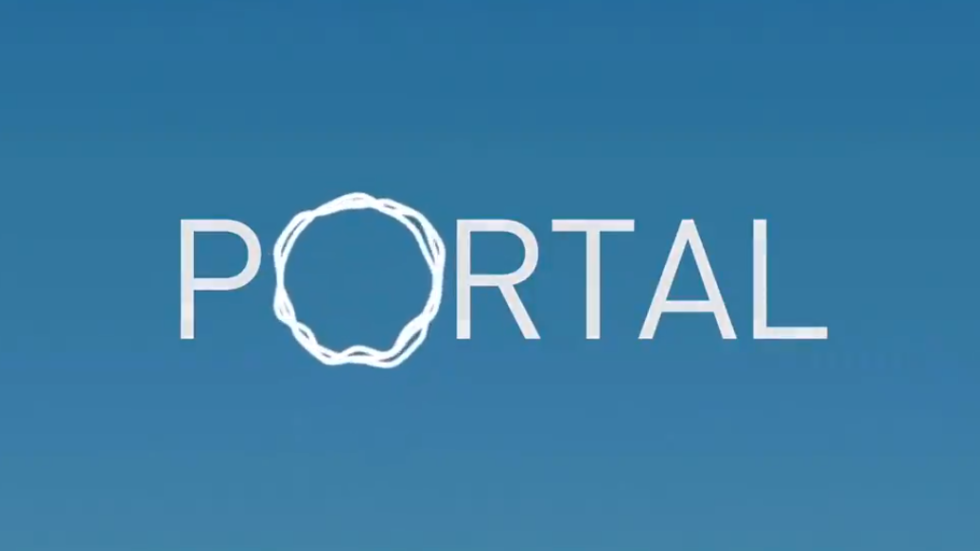Wrapped tokens have become increasingly popular because they allow traders and investors to utilize their crypto-assets on different blockchain networks. For instance, Wrapped Bitcoin, which now accounts for roughly 1% of all Bitcoin in circulation, may be used on the Ethereum (ETH) blockchain to engage in various types of decentralized finance (DeFi) transactions.
However, it may be possible to cut out wrapped tokens from virtual currency trading, which could dramatically reduce the time and overall costs involved in performing digital asset transactions. By eliminating the requirement of wrapping tokens, the user experience (UX) may be improved as well, because the process may still be too technical for many users, especially the newcomers.
Trading Native Crypto-Assets Without Wrapping Tokens
Portal’s cross-chain (decentralized or non-custodial) DEX with atomic swaps has been developed to make wrapping tokens a thing of the past. That’s because the digital currency of incompatible blockchains may be traded natively and without having to deal with a risky intermediary.
Portal is described as a self-hosted, Layer-2 wallet and cross-chain DEX that’s built on Bitcoin. It has been specifically developed to enable atomic swaps between Bitcoin (BTC) and other crypto-assets in a quick, highly secure, and private manner.
Last month, Portal announced that it had secured $8.5 million in capital via an investment round in order to create a self-sovereign and uncensorable DeFi service on the Bitcoin network.
Portal’s funding round included contributions from several high-profile investors such as Coinbase Ventures, ArringtonXRP Capital, OKEx, and Republic.co.
Michael Arrington, Founder of ArringtonXRP, has said that decentralized cross-chain bridging is one of the most challenging tasks in the blockchain and cryptocurrency space, especially as multiple blockchains start to gain adoption and traction.
Arrington also said that Portal’s Bitcoin-native approach to multichain transactions would offer an alternative bridging mechanism to the rising number of on-chain traders and investors.
Brain Johnson from Republic Capital has added that interoperability is a key requirement for blockchains to transition into the larger finance sector. He explained that Republic Capital made an investment in Portal because they approve of their approach to enabling atomic swaps. By using Bitcoin’s security as an anchor, the team at Republic Capital thinks that Portal is in an ideal position to establish an effective set of bridges to DeFi.
Offering the Trust Minimization Guarantees of Bitcoin
Portal aims to offer the appropriate speed and liquidity provided by centralized platforms while also ensuring the “trust minimization guarantees of Bitcoin.”
From spot markets to options, P2P lending and borrowing, all utilizing on-chain, peer-to-peer contracts and without third-party custody requirements, Portal aims to help users tap into Bitcoin’s potential to truly begin to decentralize finance.
At the heart or center of Portal is its Layer-2/Layer-3 tech, known as Fabric, which is described as an open-source toolkit for launching censorship-resistant layers right on top of the Bitcoin base layer.
Fabric has been designed to support the fully private, off-chain execution of smart contracts for asset issuance, P2P swaps, staking, liquidity, derivatives, and various other use-cases.
Eric Marindale, CEO at Portal, said that by bringing a quick, P2P, Layer-2 exchange — with speed that’s comparable to centralized platforms but with added privacy — Portal is in a position to truly deliver on the promise of “self-sovereignty for everyone.”
Eric also noted that most centralized trading platforms are actually not “decentralized” DEXs, like they claim to be. In fact, they are custodially wrapped tokens and censorable ecosystems that “all threaten Bitcoin’s promise of self-sovereignty.” Fabric technology “enables Layer 3 privacy on cross-chain transactions and eliminates the need for centralized custodians,” Eric explained.
Utilizing Bitcoin’s Hash Time-Locked Contracts to Ensure Users Control Assets
Martindale said that they think that Bitcoin offers the financial infrastructure that the free, uncensorable internet-of-the-future will be built on, and while they’re starting off with just a P2P exchange, their goal is to be “The Platform for decentralized, peer-to-peer human interactions… be it communications, financial transactions, or social media.”
The platform makes use of Bitcoin’s “hash time-locked contracts” to ensure that users are able to maintain complete control over the assets “offered up in trade, preventing counterparty risk and loss of funds.”
It also intends to reward or incentivize anonymous, “self-interested” third-parties “to intermediate transactions between mutually untrusting peers while guaranteeing security.”
The platform has notably acquired funding ahead of Portal’s planned public token sale, which will take place on Republic.co this month.
As explained by its creators, Portal is a DeFi solution that’s developed on Bitcoin. It makes DeFi “unstoppable with anonymous, zero-knowledge swaps via the first true cross-chain DEX that’s genuinely trustless.”
It has been created to “eliminate minting wrapped coins (ie wBTC, wETH) or risky staking with intermediaries.” With Portal, DeFi turns into a solution that “anyone can provide, maintaining anonymity within open, transparent markets with a security model as robust as Bitcoin mining.”
As noted by its developers, the Fabric protocol is Portal’s Layer-2/Layer-3 technology that “enables building censorship-resistant communications, media and one-click cross-chain swaps, all on Bitcoin.”
